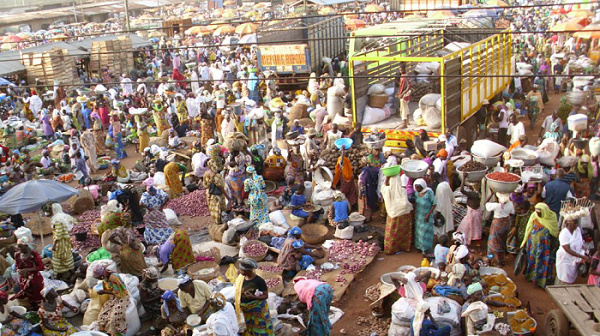ACCRA, Ghana- Ghana’s population is projected to reach 53 million by 2050, a significant increase of 20 million from its current level, according to population experts at the University of Ghana.
Professor Ayaga A. Bawah, Director of the University’s Regional Institute of Population Studies (RIPS), presented these findings at a recent event discussing Ghana’s population prospects. The program, organized by the Ghana Statistical Service (GSS) in collaboration with the university, also launched the Ghana Stats Mobile Application.

Ghana’s current population stands at 33,007,618, up from the 2021 estimate of 30.8 million. By 2050, 15 of Ghana’s 16 regions are expected to have populations exceeding one million, with only the Oti Region falling below this threshold.
“The drivers of the projected population increase are children and women,” Bawah said, emphasizing that this growth will have significant implications for the country’s development.
Six regions, primarily in the north, will remain predominantly rural over the next 26 years. The population growth will impact water, energy, and infrastructure use, with major cities like Accra potentially facing increased congestion. Youth will constitute the majority of the population, presenting potential demographic dividends.
Bawah stressed the need for deliberate government policies to harness the youth bulge, calling for expanded infrastructure and employment opportunities. “We need to create employment opportunities for the youth to absorb the growing unemployed through increased investment in skills training,” he said.
Dr. Faustina Frempong-Ainguah, Deputy Government Statistician, reported that about 711,706 people would be added to Ghana’s population annually until 2030, with a slight majority being female.

The Ghana Stats Mobile App, launched at the event, provides district-level statistics based on recent population censuses. Prof. Samuel K. Annim, the Government Statistician, described it as a user-friendly tool for accessing data on all 261 districts in Ghana.
Prof. Kofi Awusabo-Asare of the University of Cape Coast emphasized the importance of incorporating youth needs into state policies and basing government agency policies on data.
As Ghana prepares for this population surge, the challenge lies in balancing growth with sustainable development and ensuring opportunities for its expanding youth demographic.



